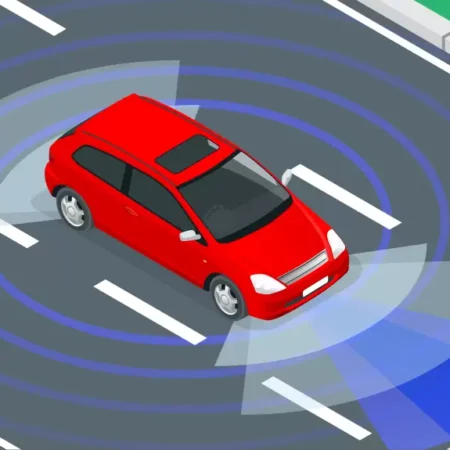Enabling Safety and Efficiency in School Bus Fleet with GPS Tracking
Go beyond the regular by tracking the school buses with GPS. This will not only ensure the safety of the students, it will also put the minds of the parents at ease and enhance the operational efficiency of the entire fleet. Develop reliable communication, accountability, and collaboration to enhance transportation security.
Over the past few years, the use of GPS tracking systems to chart a GPS route has broadened the attractions of widely spreading them within such industries as education. Energy-consuming habits gradually change, and schools have started noticing that GPS technology can greatly aid in addressing their transportation challenges. Differentiating the challenges of transportation and school safety, to incorporating benefits of cost-effectiveness and reduction of congestion, GPS tracking offers a broad spectrum of reasons why it is a budget-friendly solution for educational institutions.
Importance of GPS tracking School Bus Fleet Management
- Ensuring Student Safety: Personal commitments between safety of the students and schools always take the first place especially when it comes to transportation to and fro school. Smart GPS navigation is what offers tracking of school buses and in real time – transmitting the coordinates of the vehicle to school administrators and parents. During an emergency or emergency situations such as traffic tailbacks or unfavourable weather, officers have instant student tracking capability, thus could intervene quickly and communicate to students for safety reasons and update parents in time.
- Enhancing Parental Peace of Mind: Travelling to school is one of the primary concerns for parents as it imposes uncertainty on them. Peace of mind can be restored by knowing the whereabouts of their kids. GPS Tracking Systems operating via the sending of alerts and notifications bring it in that parents are alerted about the status and location of the school buses. This will help put at bay the worry about the school buses being missed, having delays or fictional route changes. Parents can see everything that happens at their kids’ schools when schools implement this high level of transparency and communication. This, in turn, reveals more trust between parents and schools, enhancing the whole school community.
- Improving Operational Efficiency: GPS systems incorporated into bus fleets as parts of school transportation aid in the simplification of management of the fleet by feeding data and information to control officers in schools. With the opportunity to get the up-to-date information and historical data on the routes of buses, the driving manner, and the fuel figure, schools can collect the analytic data and discover inefficiencies and problematic areas. Through optimization of shortest routes, timings, and upkeep schools will remain cost conscious, less fuel consuming and fully operationally efficient.
- Enhancing Driver Accountability: GPS-tracking has become a safe maneuver of each of the drivers, as, on the one hand, the accountability is gained, and the safety protocols are complied with. This allows schools to review driver behavior remotely, such as exceeding speed limits, harsh braking, or idling vehicles without permission, and respond to safety concerns in a quicker manner. Furthermore, this data could also be implemented to distinguish and encourage those drivers who demonstrated good low driving conduct which will direct the others to follow safety rules similarly.
- Facilitating Communication and Collaboration: GPS tracking systems become communication platforms amalgamating management of school administrators; drivers and parents. Using mobile applications and web-based platforms, stakeholders can now be served with the real-time bus route schedules and delays on a common platform as they interact; thus eliminating the lack of coordination and communication hassles. This will make the whole transportation system transparent and offer people the opportunity to own the process in partnership with the stakeholders. There will be accountability to all players transacting on or involved in the process.
Thus, the use of GPS tracking systems in fleet management of school buses offers several advantages, including safer transportation and better reporting to parents, and also more efficient operations and driver exploits accounting. Through GPS technology, the school gets an opportunity to shield students, residents, and other community members from unqualified drivers and also develops relationships of trust, cooperation, and partnership within pupils, parents, and other stakeholders.



